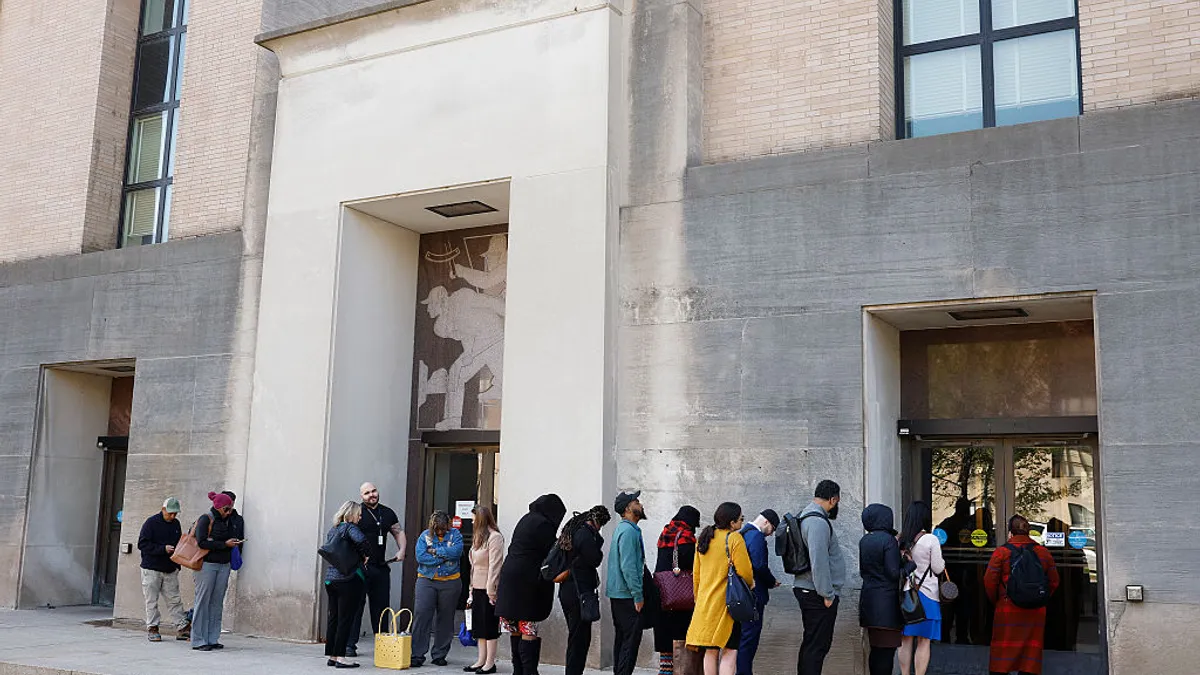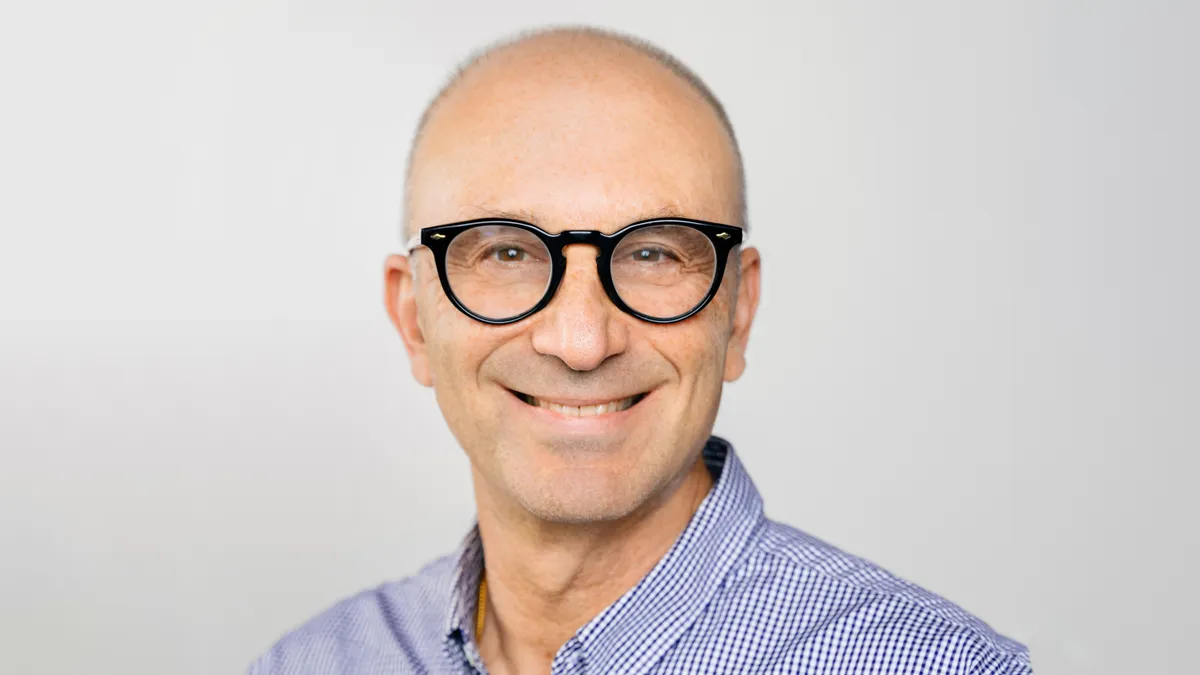LSD.
Depending on who you are, those three letters might evoke very different things: the Grateful Dead, "a girl with kaleidoscope eyes," or criminality.
For Robert Barrow, they represent an amazing, untapped opportunity with the potential to "change the entire world of mental healthcare."
Barrow is the CEO of MindMed, a New York-based clinical-stage biotech company focused on developing psychedelic-inspired medicines. Among them is MM-120, a pharmacologically optimized form of LSD for the treatment of brain-based disorders. In late January, MindMed announced that the FDA cleared its investigational new drug (IND) application for MM-120, allowing a phase 2b dose-optimization trial for the treatment of generalized anxiety disorder.
MindMed is also conducting LSD research for other indications, as well. The company announced in December that it is enrolling patients in a phase 2a study for the use of LSD microdoses to treat adults with ADHD.
For MindMed, LSD is just one of several efforts to advance the development of psychedelic-inspired drugs. The company is actively developing 18-MC, a non-hallucinogenic derivative ibogaine, a psychoactive indole alkaloid found in a West African shrub, for the treatment of opioid use disorder. The company is also investigating R(-)-MDMA, a derivative of the compound often known as “Molly” or ecstasy, for “the treatment of social anxiety and functioning in diagnoses that include autism spectrum disorder.”
The pipeline might read like a list of drugs you’d find at a 1960s party, but MindMed, which became one of the first psychedelics-based companies listed on the Nasdaq in 2021, has brought an air of legitimacy to the space while giving these drugs a reputational makeover along the way.
Overcoming stigma
Drug development isn't new for Barrow, who joined MindMed as chief development officer in January 2021 and was named CEO a few months later in June. He's a clinical pharmacologist who's led drug development at Usona Institute and Olatec Therapeutics, which specializes in inflammasome therapeutics, and is approaching the development of MM-120 as "how one would develop any good drug."
Of course, MM-120 isn't just any drug, and its parent molecule comes with a fair share of baggage.
"The drug class, historically, has had a stigma attached to it," Barrow says.
LSD was developed in the 1930s by a Swiss chemist named Albert Hofmann, whose belief in LSD as a legitimate medicine lasted until he died in 2008 at the age of 102.
"It was used very successfully for 10 years in psychoanalysis," Hofmann told The New York Times shortly before his 100th birthday in 2006. But that success was short-lived.
When proponents of the 1960s counterculture — who weren’t exactly favorites of the U.S. government — started experimenting with the drug, it didn’t take long for LSD itself to become as stigmatized as the people abusing it. LSD's death knell came in 1968 when the U.S. designated it as a Schedule I (illegal) substance.
But making LSD illegal couldn’t erase the data that exists about its potential use as a treatment for brain-based disorders like anxiety, depression and substance abuse.
"The historical turning away from this drug class was a political thing. It wasn't a scientific one," Barrow says.
LSD and ecstasy aren’t the only recreational drugs getting a reputational makeover. Recently, there has been a radical shift in how marijuana is perceived and used. Cannabis is now legal, either medically or recreationally, in most U.S. states and territories. Perhaps that's part of why the scientific community also has turned its attention back to psychedelics.
In 2019, Johnson & Johnson's nasal spray Spravato, which is based on esketamine, a more potent version a long-time party drug called ketamine or “Special K,” became the first hallucinogenic psychoplastogen treatment approved by the FDA for treatment-resistant depression. Now, there are about 70 companies that "are very seriously working in this space," Barrow says.
A potential paradigm shift
"I think there's an enormous opportunity here with LSD, and ultimately, whatever that historical perspective, it certainly isn't the current perspective on LSD," Barrow says.
In fact, Barrow believes LSD could signal a "paradigm shift" in mental health because it could provide a single-dose treatment that lasts for a longer duration. For instance, for generalized anxiety disorder, the standard of care is long-term use of benzodiazepines or selective serotonin reuptake inhibitors (SSRIs). That's not the case for LSD.
"For pretty much any psychiatric disorder a patient is first given an SSRI and largely stays on it in perpetuity, indefinitely," Barrow says. "This is a paradigm shift in the sense that a single administration — a one-time dose of LSD — we believe will have a many-month, if not years, effect of reducing symptoms."
Moreover, instead of simply blunting symptoms, Barrow says LSD could shift the trajectory of a patient's psychiatric well-being.
"We don't use the word cured," he says, adding that he believes the drug could put patients on a course toward disease modification and overall improvement.
"To see a subset of patients — even if it's just a subset of patients — have near-complete response to some of the psychedelics…[and] to be able to do this very intermittent administration that helps patients, would be a sea change where we are today in treating psychiatric disorders," Barrow says.
A broad opportunity
Barrow believes in the drug's broad potential as well as the company's vision. He points to "promising clinical findings" within the drug class not only in anxiety and depression but also alcohol use disorder, migraines and cluster headaches.
"There's likely more than just one mechanism at play here," Barrow says. "And that speaks to MindMed and why we take the approach we do, which is to think beyond just a single indication or a single drug. We think there are many generations of products that could come out of this drug class."
The company is growing quickly and strategically, transitioning from about 10 employees at the start of Barrow's tenure to about 60 now, bringing in staff with experience at companies like Sunovion, Pfizer, Janssen, Sanofi, AstraZeneca and other major pharma players.
"We're enormously optimistic about the potential to bring these products to market and the likelihood of success," Barrow says. "The only way to do that effectively and as efficiently as possible is to bring the right people in the door."
Embracing who they are
MindMed is also not shy about the word "psychedelic." To Barrow and the company, it's "simply the class of drug."
"We're not afraid one bit of overcoming any of the perceptive challenges that may be historically present," he says.
That said, although they use the term "LSD" as a point of reference for MM-120, "LSD freebase is not the product that we are." How exactly it differs from recreational LSD is something the company is closely protecting, though, with Barrow calling it a "pharmaceutically optimized version of LSD" that has the same parent molecule but with "improved characteristics that make it a better drug candidate in our minds."
"We haven't said a lot publicly about the specific [patent] applications, and that's intentional," Barrow says. "Our pharmaceutical development is always working on these improvements; changes in dosage forms that will allow us to have our own proprietary product when we get it approved and will protect our market share."
Now, with the IND cleared for MM-120, the company is planning a 200-patient study of LSD under the name “Project Lucy” at four different doses compared with a placebo using a single administration, which MindMed believes will have a multi-month effect. For the trials, MindMed will test LSD at “hallucinogenic doses” in therapy-assisted sessions.
Administering the medication at doses that cause the patient to experience psychedelic effects while being monitored by a therapist in a clinic is an approach also being used by UK-based Compass Pathways to study psilocybin, the active ingredient in “magic mushrooms,” for treatment-resistant depression.
Ultimately, MindMed says it’ll use that trial data to inform the dose selection for its phase 3 pivotal program with the anticipation that the drugs will be administered in a controlled medical/clinical setting.
For ADHD, the company also has tested LSD in "microdoses," which is the familiar term for taking psychedelics in intentionally small amounts that won’t trigger strong hallucinogenic effects. But MindMed prefers the scientific terminology "sub-perceptual dosing" or "repeated low-dose administration."
These different approaches to administering LSD show its promise in multiple, major indications — and Barrow is buoyed by the decades of science that already exist about psychedelics and the possibility of helping patients in a new way.
"When we think of the opportunity to treat these diseases that are hugely prevalent, that have a major unmet need … what's a better opportunity," he says. "We can actually change the world if we get this right."




















